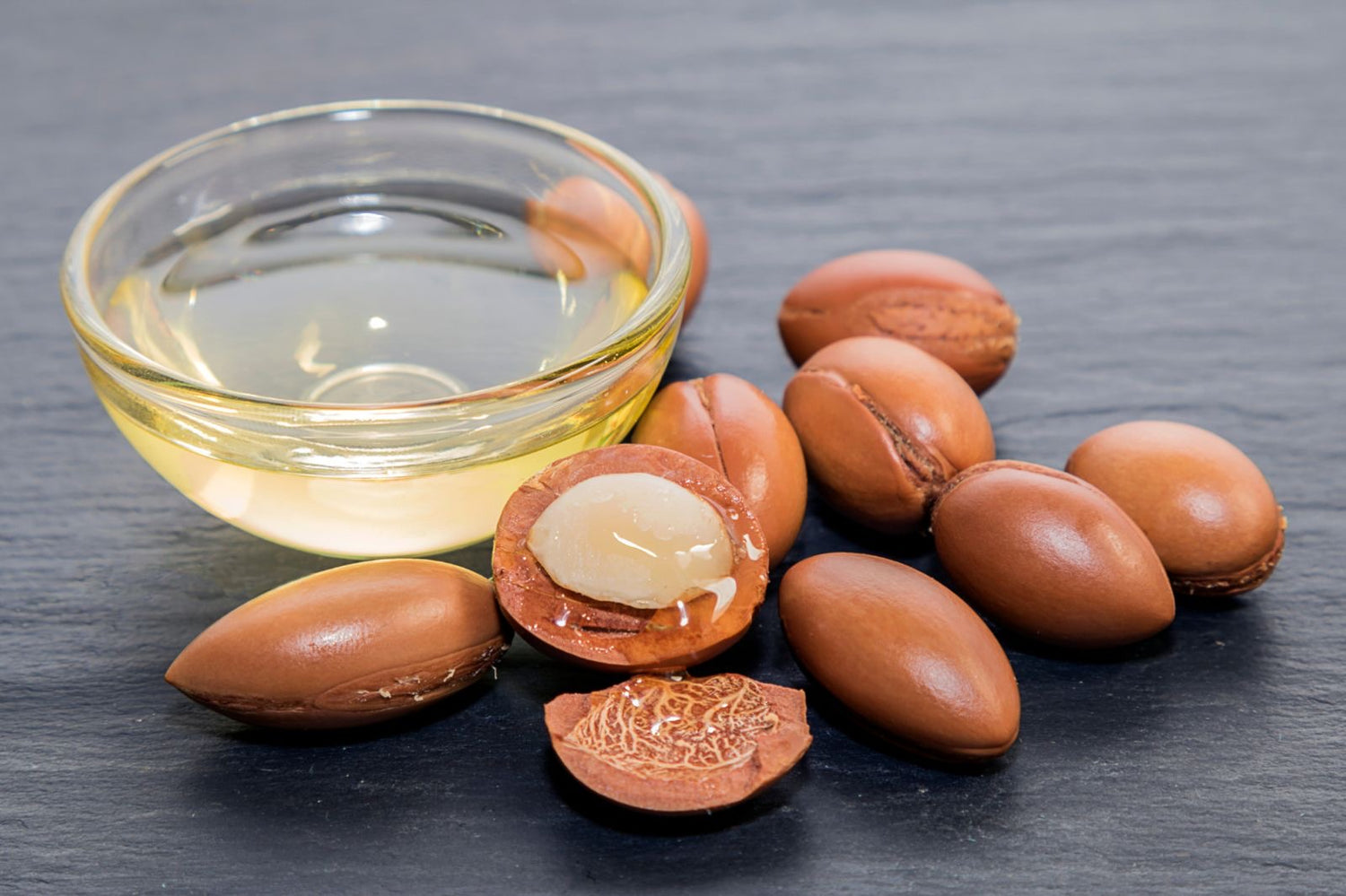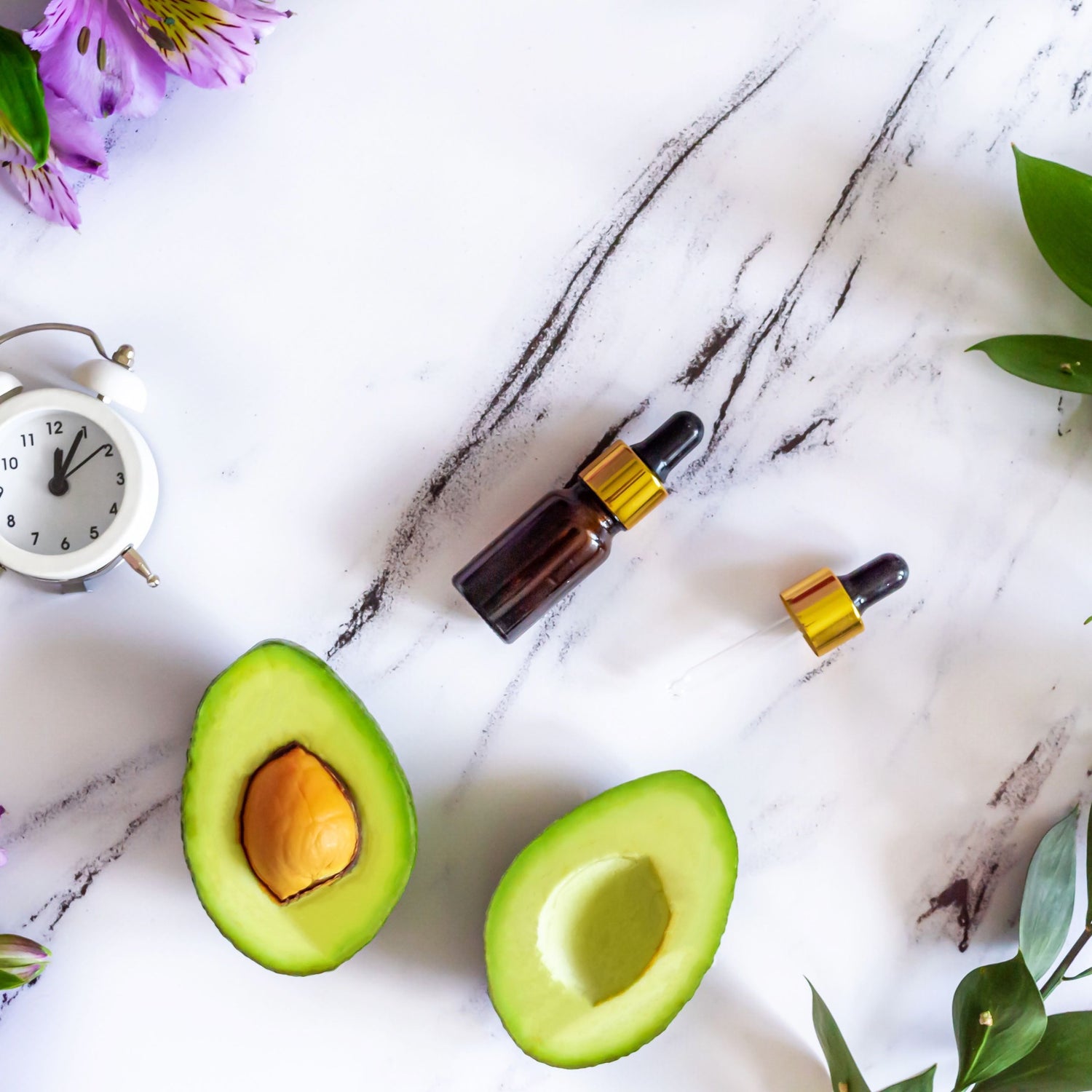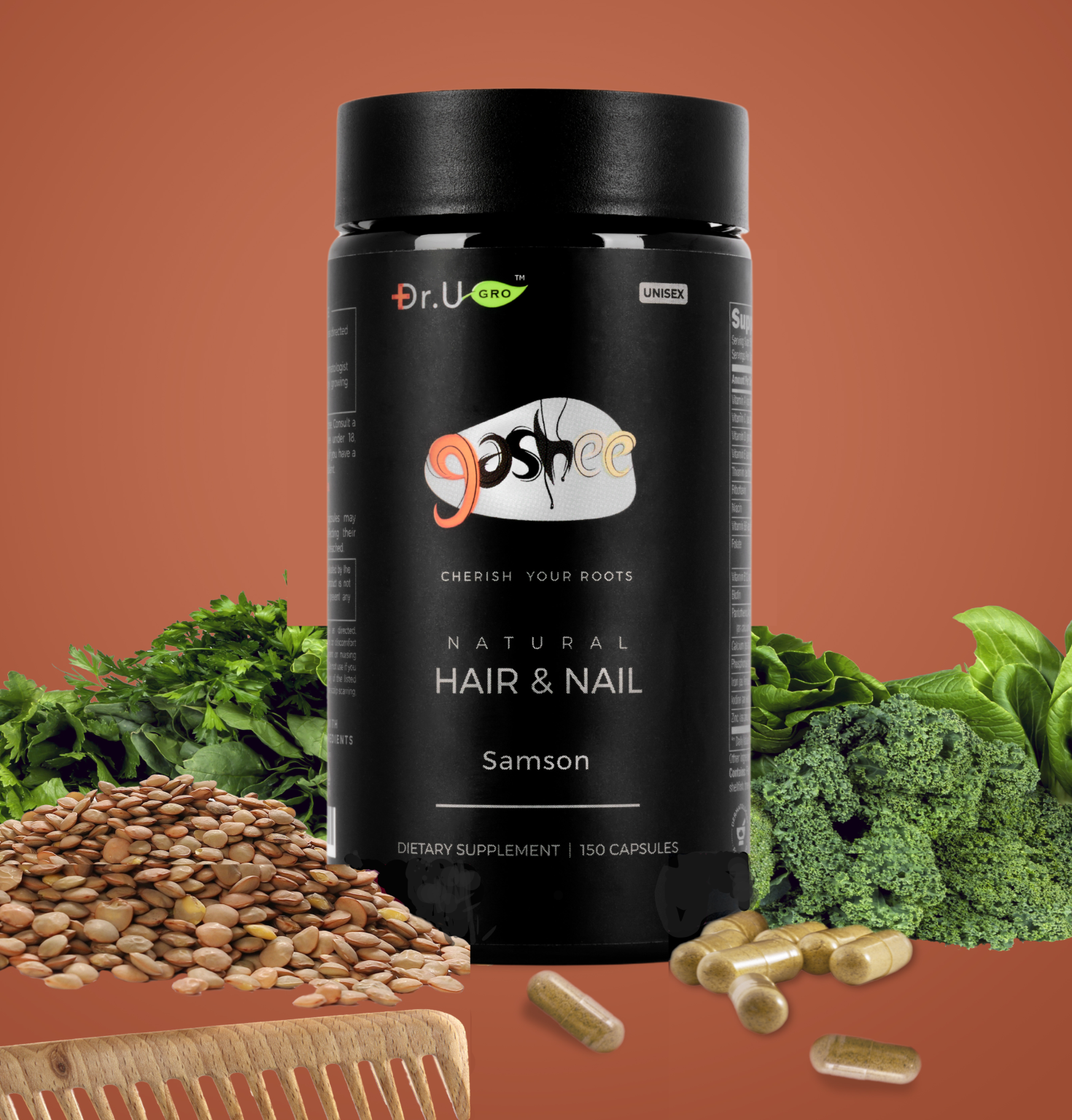What is Polygonum Multiforum?
Also known as Fo-Ti, or He Shou Wu, is a tuber fleece flower. Its roots are valued for their healing properties in ancient Chinese medicine. Recently, its reported health benefits have attracted worldwide attention, including the scientific community. Now, researchers are taking a closer look to see if individuals can reduce shedding and renew growth through a Polygonum multiflorum hair treatment approach, taken orally or topically.
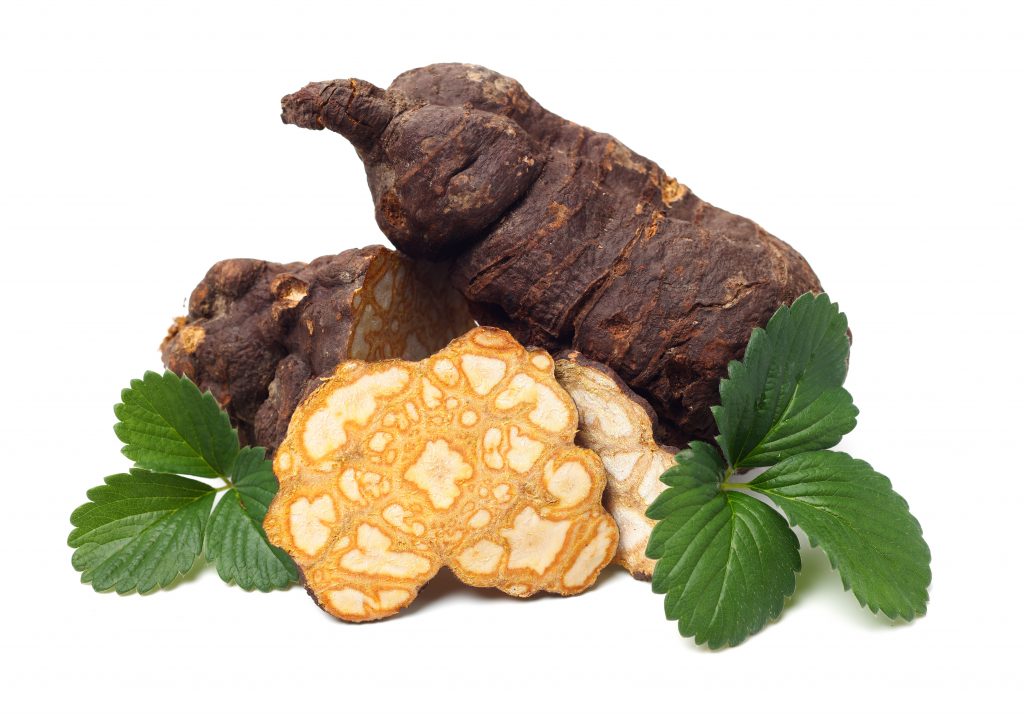
The Research on Polygonum Multiflorum, Fo-Ti Root For Hair Loss
In the past, individuals have used the essence of Polygonum multiflorum to treat an extensive range of health conditions, including neurodegenerative disorders, liver conditions, atherosclerosis, sleep problems, diabetes, and even cancer. Scientists are now interested in the possibility of using this herb to help with hair loss conditions. A large study was conducted on 507 participants to observe the effects of Fo-Ti or Polygonum multiflorum on hair loss when taken orally (1). Here are what the researchers found after collecting and analyzing their data:
- 77% of the participants experienced significantly reduced hair loss.
- 95% of the subjects noticed that issues with excessive shedding had stopped.
- 90% of the men and women who took part in this study displayed noticeable improvement in new growth after six months of taking the polygonum multiflorum hair loss treatment.

In another study performed on 24 men and 24 women between the ages of 30-60, researchers administered 4mg of Fo-Ti or Polygonum multiflorum. The subjects took the plant extract orally, twice a day. Interestingly, the participants suffered from many different causes of hair loss and androgenic alopecia, primarily induced by genetics. These included:
- Drug side effects
- Post-partum pregnancy
- Stress
After taking the Polygonum multiflorum hair loss treatment, 91% of the men and 87% of the female subjects started experiencing significant improvements after just 4 weeks.
The Topical Administration of Polygonum Multiflorum Hair Loss Treatment
The interest in topical forms of treatments for hair loss is mainly due to their potential to offer a more direct route to a target site. Oral consumption involves processing the active ingredient through the digestive tract and the circulatory system. This exposes different parts of the body to the drug's chemical. In the end, this may disrupt their normal state of equilibrium and lead to toxic side effects.
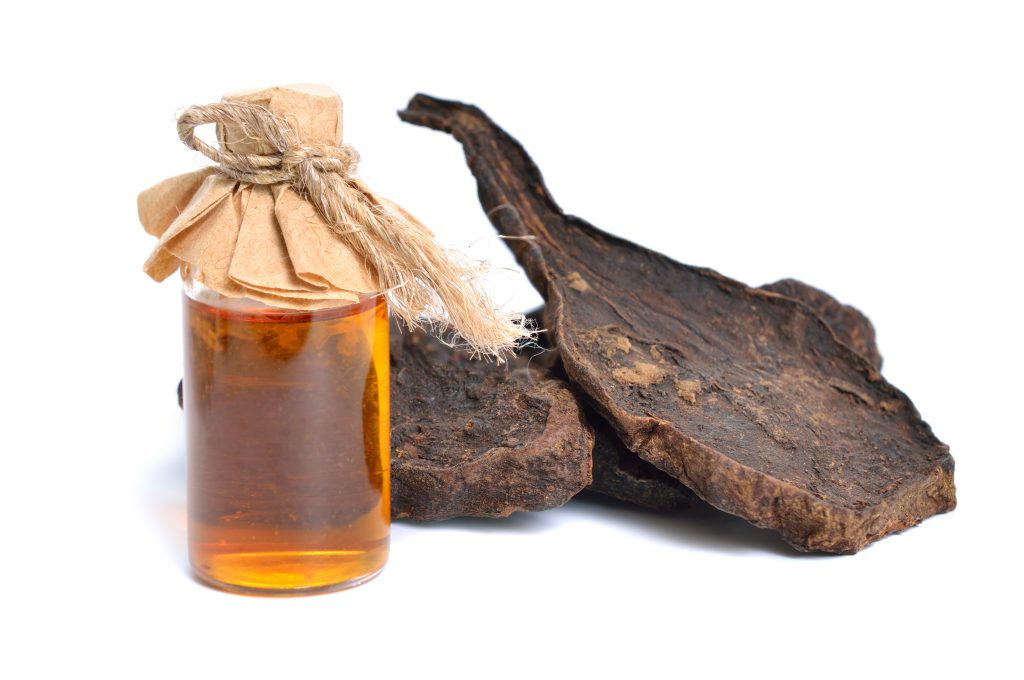
A group of researchers wanted to examine the effects of topically applied Polygonum multiflorum on hair loss to see if this might generate new growth. They prepared two versions of an externally applied treatment of Eclipta Alba and Polygonum multiflorum. First, they tested one version on a group of subjects who suffered from alopecia for 1-3 months(2). This significantly improved the hair loss state in 62% of the participants who were tested. The second version was administered to 40 subjects. Researchers noted this treatment cured the alopecia condition in 30 out of 36 participants(3). In the other four subjects, there was a distinct reduction in the appearance of their hair loss.
How Does Polygonum Multiflorum Extract Work to Grow Hair?
Scientists designed an experiment on telogenic mice to understand how a Polygonum multiflorum hair loss treatment could actually work(4). They believe that the active compound of the plant extract exerts an effect on two proteins that are present on hair follicles during their resting telogen state, namely:
- Sonic hedgehog
- B-catenin
Researchers believe this interaction activates the anagen growth phase of the follicles.

In another experiment, researchers isolated different possible active compounds from a 70% Polygonum multiflorum plant extract to see which one plays the biggest role in hair growth improvements (5). They tested five components (labeled as 1,2,3, 6, and 10) through topical application and observed their effects on derma papilla cell division and hair strand length for each one. The scientists even compared the performance of 1,2,3,6 and 10 with Minoxidil. The results of compound 2 (10 and 20 uM) surpassed 1,3,6,10 and even Minoxidil when it came to the proliferation of derma papilla cells. It also produced the longest hair growth after a 21 day treatment period.
Modern Day Uses of Polygonum multiflorum for Reversing Hair Loss
The modern-day interest in Fo-Ti or Polygonum multiflorum for reversing hair loss conditions is largely due to the demand for safer alternatives to synthetic drugs. Pharmaceutical products are associated with numerous side effects that can be dangerous to a person's health. On the other hand, natural plant extracts often contain active components and neutralizing compounds, which help balance excessive or toxic effects. The research studies noted above do support Polygonum multiflorum as a valid hair loss treatment. However, to form more specific conclusions, additional experiments performed on humans would be needed. This is especially important for designing effective topical treatments and addressing different types of hair loss conditions.

For research studies to produce reliable conclusions, they need to be performed on larger numbers of subjects. It is then possible to generalize these findings more universally across different populations.
Side Effects
Although fo-ti is herbal, there are some side effects and concerns to keep in mind before use. General side effects reported by users include nausea, vomiting, and abdominal pain. In the worst-case scenario, fo-ti can cause liver damage, although such instances are rare. Individuals who reported experiencing side effects with liver recovered with medical treatment. Nonetheless, low doses are recommended with supervision from a doctor. Due to these risks, pregnant and breastfeeding women are advised to avoid using fo-ti.
Safety Profile
The Environmental Working Group scored polygonum multiflorum a 1 (green) on its ten-point safety hazard scale to indicate minimal concerns. There are little to no studies that show significant harm concerning toxicity and allergens.
Natural Hair Growth Products Containing Polygonum Multiflorum
Dr.UGro Gashee hair products are formulated to improve hair health and growth through a combination of botanical ingredients, including Polygonum multiflorum. These products are consciously designed by Dr. Sanusi Umar, a dermatologist and hair transplant specialist, to bring out the best elements of plants. There are three forms of the formula: hair lotion, pomade, and oral supplement. Dr. Umar's innovative cold-formulated products are created to suit everyone — regardless of hair type, ethnic background, and age. Click the image below to learn more!
VIDEO: Gashee User Shares Exciting Results
Laura suffered from dry, thinning hair after reaching menopause. Nothing seemed to improve her condition until she found Dr. UGro Gashee. Watch the video below to learn more about her experience.
Frequently Asked Questions on Polygonum Multiflorum Hair Benefits
Are Polygonum Multiflorum root side effects something that would pose major health risks?
Plant-based ingredients, including Fo-Ti, may incur side effects when taken in excess or by individuals with pre-existing health issues. Polygonum multiflorum has been linked to liver complications. However, it is not clear what specific circumstances would contribute to these types of side effects. If you are concerned about the risks of taking Polygonum multiflorum orally, it is best to speak to your doctor about safe dosage levels. They would be able to generate better insight into the effects of the extract on your health profile. If you are considering a Polygonum multiflorum hair loss application, it may be safer to choose a carefully formulated topical product. Such topical products may enable a more straightforward delivery of Polygonum multiflorum root extract to the hair follicles.
Could Fo-Ti root for hair loss also reduce the formation of white or grey hairs?
The Fo-Ti root extract may also help individuals reverse the premature development of white or grey hair. A 2002 study performed on mice showed that Polygonum multiflorum could reverse white hair induced by hydrogen peroxide.
Will Fo-Ti or Polygonum Multiflorum extract help reduce hair loss along with other health benefits?
Indeed, there is a difference between reducing the rate of hair loss and growing new hair. It is not clear how this plant extract works to incur its reported benefits. Medical experts believe that the plant may stimulate compounds in the body that may be responsible for anti-aging. And one of the research studies above hypothesized that the herb's active compounds might activate two proteins on hair follicles in the telogen state, helping them transition to the anagen growth phase. Fo-Ti or Polygonum multiflorum is often used to address health issues like tuberculosis, prostate inflammation (prostatitis), high cholesterol, and insomnia. If you are interested in taking any supplement, it is best to be guided by the intent of improving your general state of health rather than focusing narrowly on a particular area. Be sure to speak to your physician about how to take the supplement safely.
References
Du Xin, et al. Anti-aging effect of Huolisu -A controlled, double-blind study of 507 middle and old age subjects. Chinese Journal of Integrated Traditional and Western Medicine 1986;6(5): 271-4.Jiang H. Treatment of 21 cases of alopecia with Shengfa Wan. Sichuan Journal of Traditional Chinese Medicine 1987;5(4):47-8.
Lan K, Chen H. Treatment of 36 cases of alopecia areata with Shengfa Yin. Hubei Journal of Traditional Chinese Medicine 1988;6:19.
Park HJ, Zhang N, Park DK. Topical application of Polygonum multiflorum extract induces hair growth of resting hair follicles through upregulating Shh and β-catenin expression in C57BL/6 mice. J Ethnopharmacol 2011;135(2):369-75.
Sun, YN, Cui L, Li W, et al. Promotion effect of constituents from the root of Polygonum multiflorum on hair growth. Bioorg Med Chem Lett 2013;23(17):4801-5.
Sanusi Umar, Marissa J. Carter, "A Multimodal Hair-Loss Treatment Strategy Using a New Topical Phytoactive Formulation: A Report of Five Cases," Case Reports in Dermatological Medicine, vol. 2021, Article ID 6659943, 12 pages.
Xiang Lei, Jing Chen, Jingtian Ren, Yan Li, Jingbo Zhai, Wei Mu, Li Zhang, Wenke Zheng, Guihua Tian, Hongcai Shang, "Liver Damage Associated with Polygonum multiflorum Thunb.: A Systematic Review of Case Reports and Case Series", Evidence-Based Complementary and Alternative Medicine, vol. 2015, Article ID 459749, 9 pages.
Further Reading
What researchers found about horsetail oil for hair growth




